Conflict and Resolution
Recently, I shared about an experience I had that could have been tense, anger-inducing, and possibly ruin my day. Instead, it turned out differently than most would expect:
Yesterday, a white supremacist began sending messages to my FB page in response to one of my TED talks. I think it was mostly an attempt to get a rise out of me.
What ended up happening was a conversation unfolded – mostly me asking him questions that also helped dispel some of the assumptions he had about me. Whenever he painted with broad strokes (i.e “all studies are from liberal universities” or “mass media”), I just asked for fine details, for examples. I didn’t just send him some Slate or Vox article; I asked which sources seemed more reputable to him and why…then would find examples within those that refuted his own claims. Then, I shared some of my own experiences.
In the end, he actually thanked me for my time and my responses.
I’m not saying that every interaction ends this way but I do think that conversations on complex, tough issues should be given the nuance that they deserve. That means pushing aside assumptions and using clarity and compassion to address things. Getting riled up isn’t useful for changing hearts and minds (that tends to only satisfy trolls or leads to defensiveness) – but empathy, integrity, and passion often can be.
In fact, it’s like another TEDx talk I gave (How to Talk With a White Supremacist)...
I started thinking more this interaction in light of the many difficult conversations people have been having in the wake of George Floyd’s murder and the ensuing protests taking place across the country. President Trump seems to be roiled in his own culture war on this, torn between his normal dog-whistling rhetoric that plays to the MAGA base and his campaign’s desire to court black voters in the upcoming election. This of course has sparked many other debates: whether to protest or not, who the victims are, whether riots are actually effective, what accountability there should be for police, and so on.
It is not all that different from the many other prominent tragedies where unarmed black when killed at the hands of police in broad daylight: people protest, people post notes of solidarity on social media (either for the victims or for law enforcement), people get angry, and many people forget…until the next tragedy occurs. In the midst of this, there is often a sense of shock when someone encounters a differing opinion. The indignation is clear: How can you not see it my way?
A lot can be said about why two people can look at the same news story and have a completely different interpretation as to what transpired. Our views are shaped our personal experience, values, and ideas. They are the filters and lenses in which we absorb information. When our minds encounter anything beyond our experiences, we often learn by method of loci, or within the confines of what we know: information is connected together by linking it to locations within a familiar environment. And that usually only happens when there is a deliberate choice to learn.
I bring this up because it is important when we encounter conflict. Most debates aren’t about opposing values or which principles we should adopt. Most are disagreements about differing interpretations over values and principles that we already share. But that’s not how most of us interact. Most of us engage in debate as it were a game, with one side winning and the other losing. And no one wants to lose. No one wants to be wrong.
The standard for progress shouldn’t be if you win a debate or argument, but rather, if you find new ways of developing compassion in the face of opposition. In nearly any situation, you only win someone over when they believe that they win by joining you (and often, if they believe it was their idea to begin with). So it is important to not only understand your own personal filters of interpretation, but also others as well. Then, you position your own ideas using their lens. That’s effective communication.
The best way to test your own values is finding how you can articulate them in a way that connects you with others. But shutting them down doesn’t do anything to advance justice – the cure for bad speech isn’t censorship, it’s more speech, better speech – speech that is nuanced and that speaks to others’ views. Remember, apathy is not compatible with love. Ignorance – including being ignorant of others’ experiences – is not the fuel for compassion.
We know that the stakes are high: in the last few years, more unarmed black men have been killed by police in the U.S than every white supremacist and terrorist group in the world combined. That alone should be staggering enough to cause our country to reframe our own ideas about law enforcement, accountability, and justice. But sadly, it is not enough for some. So if the stakes are high enough, don’t they warrant a more effective process of debate and conflict resolution?
Bending the moral arc of justice requires patience, persistence, and people willing to do the work. Dismantling systems of oppression not only requires the changing of systems and institutions, but the culture as well. But you can’t change the culture by force. It can only be changed through empathy and meaningful connection.
Don’t let quibbles over tangents (i.e, “What does it mean?”) sidetrack us from the all-important conversation that should unite us together: Why did this happen? Is this the kind of community we want our children to grow up in?
